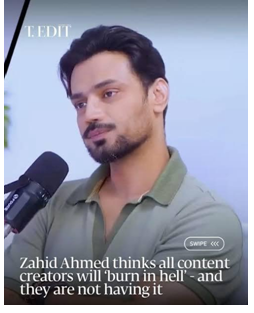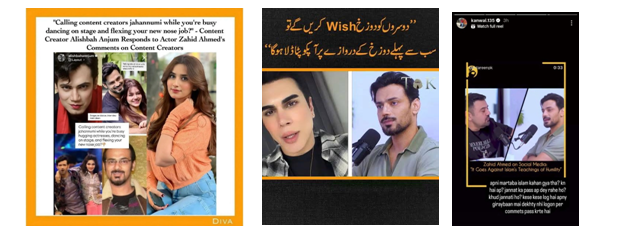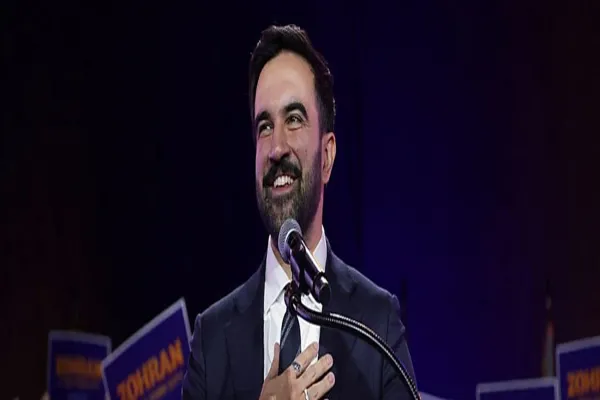i BLOGS
The Rise of Short-Form Video and the Influencer Economy in Pakistan
In the past few years, Pakistan’s media landscape has changed dramatically, and the reason behind this transformation is the short-form video revolution. Platforms like TikTok, Instagram Reels, and YouTube Shorts have completely reshaped the face of Pakistani media.
A few years ago, entering the media industry and making a name for yourself was an extremely difficult task. In a country like Pakistan, where many talented girls are often not given the permission or opportunity to showcase their skills, and finding a suitable platform was nearly impossible.
However, with the rise of smartphones and the digital era, that reality has completely changed. Now, those same girls are reaching audiences across the world — all from the comfort of their homes — simply through their creativity and mobile phones. Millions of people are following them, appreciating their talent, and engaging with the content they create.
This digital transformation has given a powerful voice to many who were once unheard, proving that passion and creativity can break barriers — even in a traditional society like Pakistan.
Unlike traditional advertising, which was expensive and often limited to large corporations, this new model allows small businesses and local brands to collaborate with micro-influencers who have loyal and engaged followers. Many creators who began posting videos just for fun have now turned their passion into a profession and we have the biggest example of Dananeer Mobeen who gained popularity in 2021 with one catchy statement in her Instagram video which became viral and now she has 6.5M followers on Instagram.
However, this fame hasn’t been easy for Pakistan’s traditional media industry to digest. Several Pakistani actors have publicly made negative statements against content creators. Recently, actor Zahid Ahmed, in one of his podcast appearances, called social media the “work of devils” and even went as far as to say that all content creators will go to hell.

His statement sparked a huge uproar on social media, and many digital creators finally decided to speak up. They argued that social media has given a platform to thousands of talented people who would otherwise never have been recognized by mainstream media. Adnan Zafar (more commonly known as Ken Doll) criticized the actor and termed his statement “double standards”. Another popular TikToker, Kanwal Aftab, also gave a strong response to Zahid Ahmed’s remarks. She questioned his hypocrisy by saying, “Where did your Islam go when it came to your own actions?” Her statement quickly went viral, with many supporting her for standing up against the double standards often seen in the entertainment industry.

After all the controversy, Zahid Ahmed released an apology video in which he clarified his earlier remarks. He explained that when he said “dozakhi,” he was referring to the creators of social media platforms, not the content creators themselves. He also expressed regret for his choice of words, admitting, “I am ashamed of what I said because I am no one to call anyone a sinner.”
However, there is a growing need for digital creators and content regulations to ensure that creators follow ethical guidelines and respect the cultural and social values of Pakistan while producing their content.
Despite all these challenges, the future of short-form video content in Pakistan remains bright. This new wave of digital creativity continues to empower young people, giving them a voice, visibility, and financial independence — all through the power of their smartphones and imagination.
Credit: Independent News Pakistan (INP)









